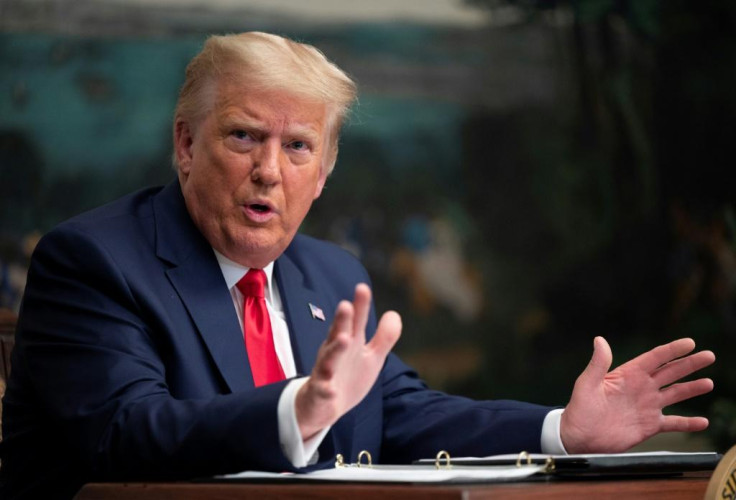Trump declares victory for Covid lab leak theory, claims he was right
Trump posted on his blog Tuesday that time has vindicated him, though there is no definitive proof that COVID-19 leaked from a lab.
Former President Donald Trump declared a personal victory Tuesday for his claims that COVID-19 was leaked from a lab in Wuhan, China. Initially dismissed as an anti-China conspiracy theory, interest in the possibility has been renewed as researchers struggle to find evidence of its origin.
Trump posted on his blog Tuesday that time has vindicated him, though there is no definitive proof that COVID-19 leaked from a lab.
"Now everybody is agreeing that I was right when I very early on called Wuhan as the source of COVID-19, sometimes referred to as the China virus," he said. "To me it was obvious from the beginning but I was badly criticized, as usual. Now they are all saying 'He was right.' Thank you!"
Trump's comments come after some scientists recently called for an investigation into the origins of the coronavirus. Columnist Jonathan Chait noted in New York Magazine that "the hypothesis is far from proven. But this account of the virus's origins is highly plausible, and at least as well-grounded as the original story of an infection that naturally leapt from a bat to a person."
The lab-leak theory was a favorite of Trump's during the 2020 campaign as he attempted to both downplay the severity of the pandemic and blame his enemies abroad.
Trump attracted widespread criticism for the "China virus" monicker, with critics saying it encouraged a wave of anti-Asian hate crimes. A study found that a tweet from Trump using the name sparked a "precipitous" rise in anti-Asian hashtags.
Trump's statement ignored past controversial comments that may have weakened his credibility, such as his referencing of a National Enquirer story that linked the father of Sen. Ted Cruz, R-Texas, to the alleged assassin of John F. Kennedy.
Trump has also frequently cited conspiracy theories in open contradiction of his own intelligence agencies.

This article is copyrighted by International Business Times, the business news leader





















